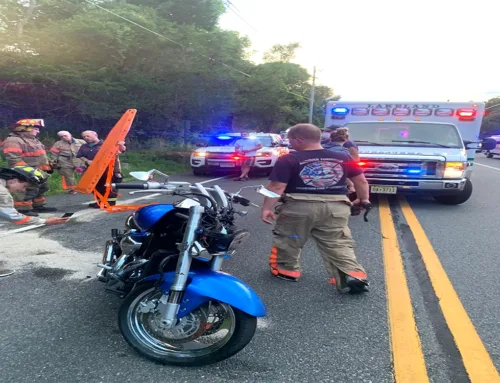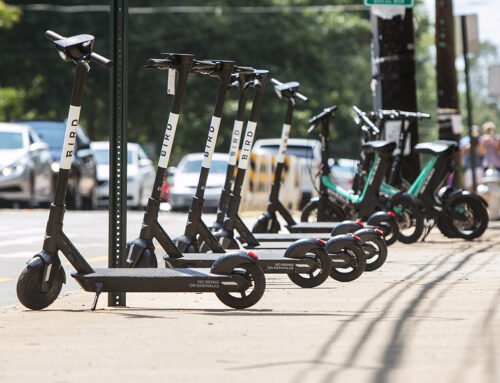Riding a motorcycle is naturally more dangerous than driving a car or truck and requires a different set of skills to drive safely on the road. Most states have a separate set of rules and laws for motorcycle licensing requirements. Proper gear and equipment is essential to the safety of any rider, so it’s no surprise that most states also have laws requiring riders to wear certain elements of safety gear and equipment. Since motorcycle laws vary from state to state, it’s important to familiarize yourself with New Jersey’s specific requirements before hitting the road. An experienced motorcycle accident lawyer is well-versed in the state’s motorcycle laws.
Who Can Ride – Licensing and Endorsement
 The skills needed to ride a motorcycle safely are different from those involved in driving a car in several important ways. Therefore, having a standard driver’s license is not enough to enable you to ride a motorcycle in New Jersey. If you already have a driver’s license, you can add a motorcycle endorsement to it. You can also obtain a license that applies exclusively to motorcycle operation, if you don’t have and don’t want a full driver’s license. In most cases, you must first obtain a motorcycle permit before you qualify for a motorcycle license or endorsement.
The skills needed to ride a motorcycle safely are different from those involved in driving a car in several important ways. Therefore, having a standard driver’s license is not enough to enable you to ride a motorcycle in New Jersey. If you already have a driver’s license, you can add a motorcycle endorsement to it. You can also obtain a license that applies exclusively to motorcycle operation, if you don’t have and don’t want a full driver’s license. In most cases, you must first obtain a motorcycle permit before you qualify for a motorcycle license or endorsement.
- Permit – Applicants for a motorcycle permit must be at least 17 years old. They must complete a permit application, pay a $5 fee, and pass a vision exam and a knowledge test. Riders with a motorcycle permit are restricted from carrying passengers, riding on state toll roads or limited access highways, and riding at night (between 30 minutes after sunset to 30 minutes before sunrise). If applying to add a motorcycle endorsement to your existing driver’s license, you must first practice with a permit for at least 20 days. If applying for a motorcycle-specific license, riders under 21 must practice for six months, and riders over 21 must practice for 3 months.
- Endorsement – The requirements for adding a motorcycle endorsement to an existing driver’s license are easier than getting a stand-alone motorcycle license, and they become easier still if the rider passes the Motorcycle Safety Education Program Basic Rider Course. Riders under 18 must pass this course before they can receive a motorcycle endorsement. Parental consent is required for riders under 18, and applicants must be at least 17 years old. After completing the course, you simply bring your course completion documents with you to the driver testing center, take the vision exam and pay the fee, and you will receive your endorsement. Without taking the Basic Rider Course, you must pass a knowledge test, obtain a permit, and pass a road test after practicing for 20 days, in addition to the previous requirements.
- License – Without an existing driver’s license, the requirements for obtaining a motorcycle license are more stringent. Applicants under 18 must take the Basic Rider Safety course. All applicants must obtain a motorcycle permit. After the required practice time, you can take the road test; passing the test earns you a Class E (probationary) motorcycle license. For one year, you must follow the restrictions associated with a probationary license. Then you are eligible to apply for an unrestricted license.
What You Need – Safety Gear and Equipment
As any motorcycle accident lawyer can tell you, proper safety gear and equipment can mean the difference between life and death for a rider. Recognizing this, the state of New Jersey has passed regulations mandating the use of specific safety gear and motorcycle equipment.
- Helmets – All riders and passengers, regardless of age, must wear an US Department of Transportation approved non-reflective helmet with four inches of reflective tape on each side. There are no legal restrictions on helmet speakers.
- Eye Protection – Appropriate eye protection is required unless the motorcycle is equipped with a wind screen that meets legal specifications.
- Lights – Every motorcycle must have a working headlight (but no more than two), a tail light, a brake light, license plate illumination, and at least one rear reflector. Daytime usage of a modulating headlight is permitted. Turn signals are not legally required, but are still a good idea.
- Mirrors – At least one rear-view mirror is required by law.
- Passenger Restrictions – Provided that a rider is eligible to carry passengers, there is no age restriction on passengers who may ride. If a motorcycle is carrying a passenger, it must be equipped with a passenger seat and footrest. Passengers must wear a helmet.
- Other Equipment Regulations – When in a normal seated position on the motorcycle, the handgrips of the handlebars must be no higher than shoulder height.
Every motorcycle accident lawyer has stories about clients who were severely injured in part because of inadequate riding gear. Following these regulations isn’t just about the law; it’s about your safety.
New Jersey motorcycle riders are involved in over 2,500 crashes every year. A leading cause of many crashes is due to motorcycle driver inexperience. Almost 90% of motorcycle crashes involve riders that have no motorcycle training.
Drivers of motorcycles and cars are required to abide by the same traffic laws. Unfortunately, many car drivers do not respect the safety of motorcycle drivers. New Jersey has started a “Share the Road” program encouraging cars to look out for motorcycle riders. Despite this, more than 2/3 of all motorcycle accidents involve drivers that did not see the motorcycle.
Contact MyNJInjuryLawyer Howard P. Lesnik
If you or a loved one suffered an injury in an accident in NJ, you should contact an attorney familiar with handling these claims. An experienced NJ Injury Lawyer will know how to obtain medical records, videos, photographs, experts, locate witnesses and contact the insurance company so you can make a claim for your injuries.
My NJ Injury Lawyer Howard P. Lesnik, Esq. offers complimentary strategy sessions to address any issue or questions you may have for your injury claim in NJ.
Please contact NJ Injury Lawyer Howard Lesnik, Esq., immediately if you were involved in an accident. I personally handle NJ personal injury cases on a regular basis. Please contact me now by email, by phoning 908.264.7701, or by completing the form to the right to schedule your complimentary 30-minute strategy session.






